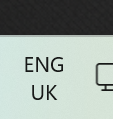Some useful information and links regarding charging lead acid batteries.
Minimum voltages and preventing ‘gassing’.
- 6V batteries need to stay below 7.1V to avoid gassing, and typical charge voltages are 6.9V (float) to 7.5V (bulk charge).
- As you increase the voltage to get faster charging, the voltage to avoid is the gassing voltage, which limits how high the voltage can go before undesirable chemical reactions take place.
- Charging voltages range between 2.15V per cell (12.9V for a “12V” 6 cell battery) and 2.35V per cell (14.1V for a “12V” 6 cell battery).
- If the battery is not yet fully charged you can use much higher voltages without damage because the charging reaction takes precedence over any over-charge chemical reactions until the battery is fully charged. This is why a battery charger can operate at 14.4 to 15 volts during the bulk-charge phase of the charge cycle.
What the voltage reading means:
A voltage of 13V after charging a 12V lead-acid battery is generally good, but it’s best to let it rest for a few hours or overnight to see the resting voltage. A fully charged battery’s resting voltage should ideally be between 12.6V and 13.0V; if the voltage drops below 12.6V after a rest, the battery may not be fully charged or could be degrading.
- < 12.6V: The battery is not fully charged, or it may have sulfation.
- 12.6V to 13.0V: A healthy, fully charged battery.
- Above 13.0V: This can be normal right after charging or if the battery is still warm, but the voltage should decrease over time.
To get a more accurate reading:
- Disconnect the charger: Remove the charger from the battery.
- Let it rest: Allow the battery to sit for several hours, or preferably overnight.
- Measure the resting voltage: After the rest period, measure the voltage with a multimeter.
If the resting voltage is high (e.g., 13V+):
- Should be ok if the battery is new and/or was charged aggressively
- The voltage should naturally decrease to 13.0V or less within a day or so.
If the resting voltage is low (e.g., <12.6V):
If the battery is old, this could indicate degradation and a shortened lifespan. Refilling fluids and giving it a little shake to mix and recharging it may be a temporary solution.
Links & References
Reviving a lead–acid battery | SAVAS.CO.UK
https://savas.co.uk/2020/reviving-a-lead-acid-battery/
How to charge all lead acid batteries; how to charge SLA lead acid batteries, a tutorial for engineers about lead acid chargers and charging.
https://www.powerstream.com/SLA.htm
12v lead acid resting voltage question forum discussion/thread
https://www.helifreak.com/showthread.php?t=679157





